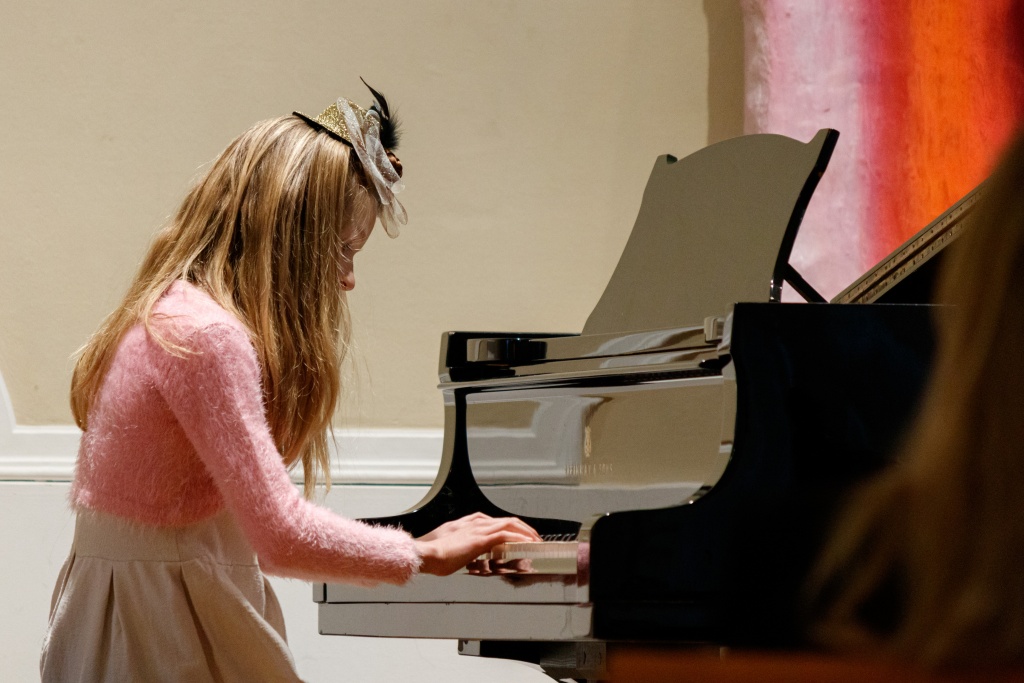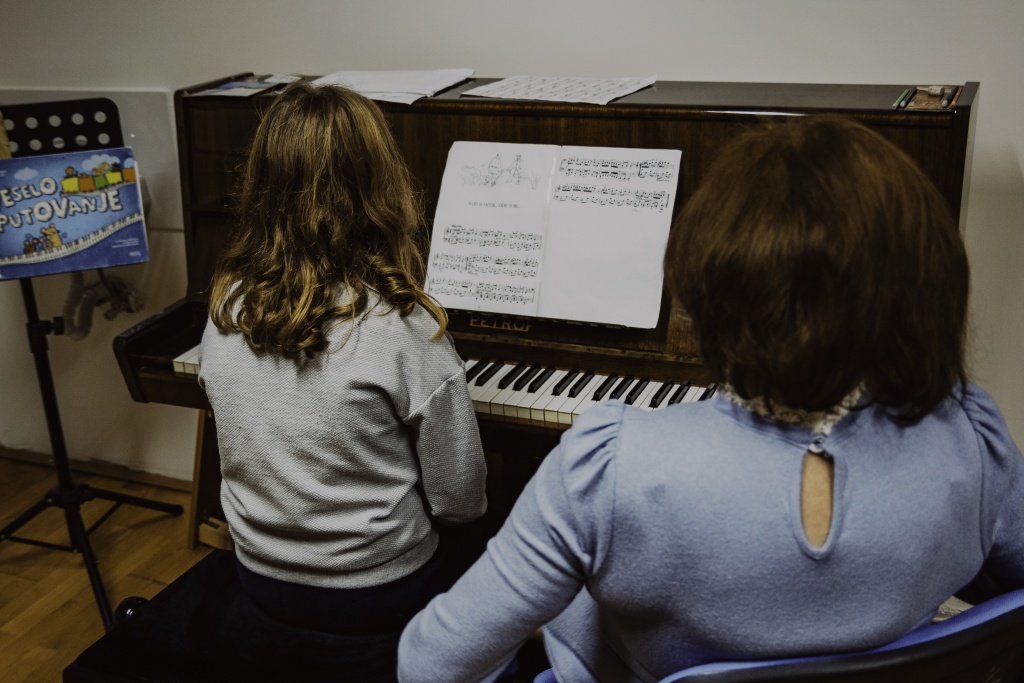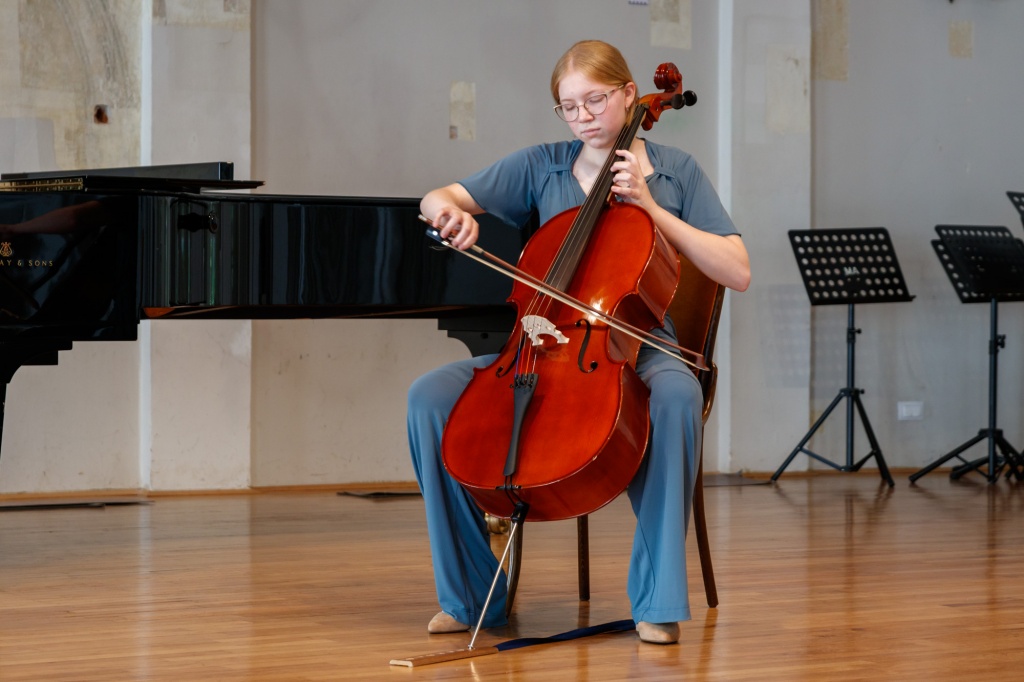Courses
Music courses are intended for students who do not want to undergo regular music education, but are interested in learning an instrument or solo singing, and for students who are interested in preparing for the entrance exam at the Music Academy. Courses have no age limit. All courses are individual, and their plan and program is formed according to the agreement with the student in order to satisfy his wishes and possibilities.
The course lasts through one school year, and there are two types according to the intensity of the course; one offers 8 school hours per month and the other 14 school hours per month.
Classes are held in the premises of the Private Music School ‘Iva Kuprešak’ in Zagreb Ljubijska 82, and in the Regional Department in Novalja, at Ulica Matice hrvatske 9.
Music courses are possible for the following subjects:Piano
Piano
The black and white world of 88 keys has always attracted a lot of interest, so even in our school, the largest number of students play the piano. By mastering technical exercises and compositions of various genres and stylistic periods, young pianists gradually build the art of virtuoso interpretation with which they can present the entire orchestra with only one instrument.Cello
Cello
As the foundation of every orchestra, string instruments have a long historical development and tradition. Although demanding, they enchant with their beautiful tone, so there is no lack of interest in playing them. String instruments can also be taught at the school, which, in addition to being soloists, sound excellent in chamber ensembles and string orchestras.Flute
Flute
The group of wind instruments is more numerous and sound-diverse than string instruments, so it also offers a wider range of expressions in playing together. Students achieve successful results in this regard by joining forces in a small and a large wind orchestra, playing wooden and brass wind instruments.Accordion
Accordion
The accordion is an instrument that consists of three main parts - treble (with keys or buttons), bellows and bass. In addition to these basic parts, it is interesting to mention that the accordion, depending on the size of the instrument, has a different number of registers, which allow it to change different pitches and expand the range of tone tones.Music theory
Music theory
To acquire a complete musical personality with the learning of an instrument, knowledge of music theory is necessary. Musical literacy, knowledge of stylistic determinants and the laws of the structure of a work help the student to better understand the compositions he plays and to interpret them better and more fully.Guitar
Guitar
Along with the piano, the most popular instrument is the guitar. In addition to popular music known to the general public, this quiet intimate instrument also finds its application in the sphere of classical repertoire, equally solo and in harmony with the piano or as an accompaniment to a solo voice.Violin
Violin
The violin is a string instrument with a recognizable, clear sound. Although she is often called the queen of instruments, she is primarily the basis of the orchestra and forms its base. But whether we look at it as a solo instrument or as part of an orchestra, we will see that it is present everywhere, both in classical and jazz music and in folk ensembles and all other musical directions. Learning the violin begins at an early age on a small instrument adjusted to the child's height and "grows" with him to his true size.Saxophone
Saxophone
The group of wind instruments is more numerous and sound-diverse than string instruments, so it also offers a wider range of expressions in playing together. Students achieve successful results in this regard by joining forces in a small and a large wind orchestra, playing wooden and brass wind instruments.Solo singing
Solo singing
The human voice is considered to be the oldest instrument, and due to its nature solo singing begins to be learned at a later age than other instruments. Through a diverse program of vocalizations, opera and oratorical recitatives and arias, as well as solo songs, students learn to express deep emotional states and convey the diversity of the content of a work through voice expression, facial expressions and stage performance.


